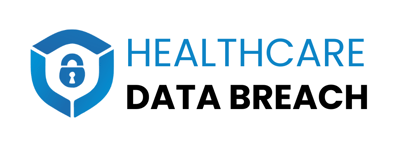The Emotional Toll of Healthcare Data Breaches: Why Privacy Matters
In this blog post, we have delved into the emotional impact of healthcare data breaches, exploring why privacy matters and how the loss of it can affect individuals on a profound level.
8/18/20243 min read


1. The Violation of Personal Privacy
Healthcare records contain some of the most intimate details of our lives—our medical history, treatments, diagnoses, and even mental health information. When this data is exposed, it feels like a personal violation, as if our most private moments have been laid bare for strangers to see. The thought of this information being in the wrong hands can be incredibly distressing, leading to feelings of vulnerability and helplessness.
Problem: The loss of privacy in a healthcare data breach can make victims feel exposed and violated, leading to significant emotional distress.
2. Anxiety and Fear of Future Consequences
For many victims, the aftermath of a data breach is filled with anxiety. There’s the immediate fear of identity theft and financial fraud, but there’s also a more pervasive worry about what else might happen. Will their medical information be used against them? Could their data be sold on the dark web, leading to further violations? This constant state of worry can affect a person’s mental health, leading to anxiety, stress, and even depression.
Problem: The uncertainty and fear following a data breach can have a lasting impact on a victim’s mental health, leading to chronic anxiety and stress.
3. The Erosion of Trust in Healthcare Providers
When a healthcare provider fails to protect patient data, the breach of trust can be profound. Patients rely on their healthcare providers not only for medical care but also for the safe handling of their personal information. A data breach shatters this trust, making patients question the integrity of the system designed to protect them. This erosion of trust can lead to hesitation in seeking medical care, reluctance to share necessary information with providers, and a general sense of distrust towards the healthcare system.
Problem: The loss of trust in healthcare providers can lead to a breakdown in the patient-provider relationship, potentially compromising the quality of care.
4. The Emotional Weight of Identity Theft
For those whose information is used for identity theft, the emotional impact can be overwhelming. Victims often feel a loss of control over their lives, as they deal with the fallout of fraudulent activity. The process of restoring one’s identity is not only time-consuming and costly but also emotionally draining. The sense of violation, coupled with the burden of resolving the issue, can leave victims feeling isolated and stressed.
Problem: Identity theft resulting from a data breach can cause significant emotional distress, as victims grapple with the loss of control over their personal information.
5. Social and Professional Repercussions
In some cases, the exposure of sensitive healthcare information can have social and professional consequences. For example, if mental health records or sensitive medical conditions are made public, it could lead to stigma or discrimination in the workplace or social circles. Victims may feel embarrassed or ashamed, which can strain personal relationships and affect their professional life.
Problem: The public exposure of sensitive healthcare information can lead to social stigma and professional challenges, further compounding the emotional toll of a data breach.
The Human Side of Data Security
Healthcare data breaches are not just about stolen information—they’re about stolen peace of mind. The emotional impact of these breaches is real and significant, affecting victims in ways that go far beyond financial loss. As we move towards an increasingly digital healthcare system, it’s crucial that we prioritize not just the security of patient data, but also the well-being of those whose information we are entrusted to protect.
For victims, it’s important to seek support and take proactive steps to mitigate the impact of a breach. For healthcare providers, understanding the emotional toll on patients should be a driving force behind stronger data protection measures. Privacy matters, not just as a legal requirement, but as a fundamental human right that, when violated, can have lasting emotional consequences. By recognizing and addressing these emotional impacts, we can create a healthcare environment that is not only safer but also more compassionate.
Follow us on social media
Legal
© Healthcare Data Breach 2024. Healthcare Data Breach is a trading name of Thinking Smart Ltd company number 09496430. This website is operating in accordance to the privacy policy. Healthcare Data Breach connects clients to regulated no win no fee solicitors who deal with data breaches. We do not perform any legal services but simply connect you to a legal representative.
|
© 2024. All rights reserved.
